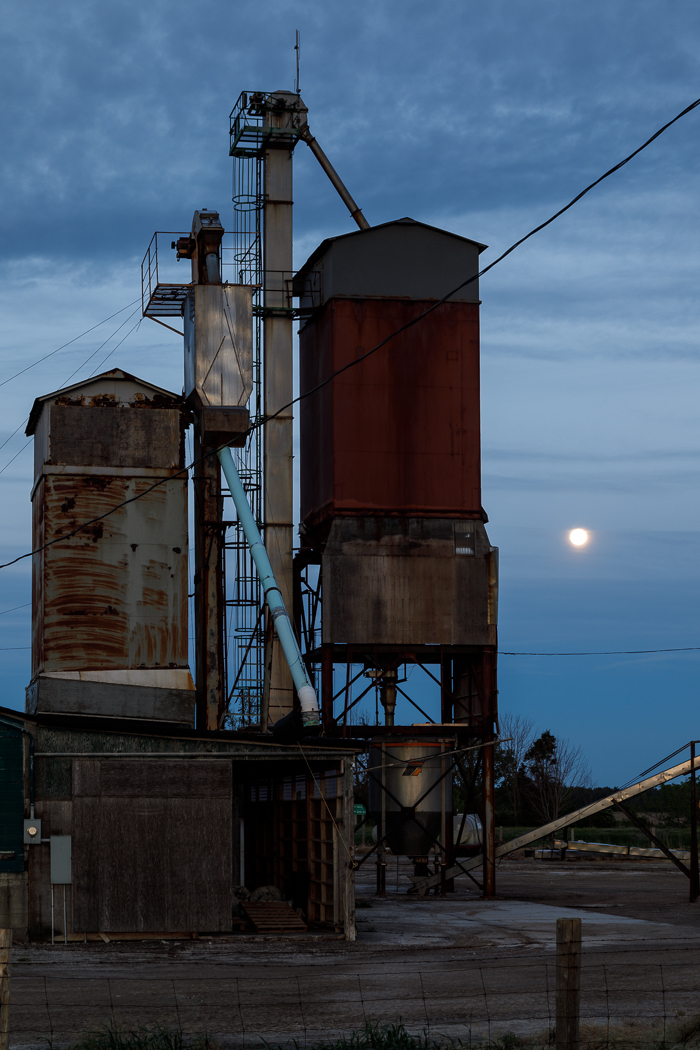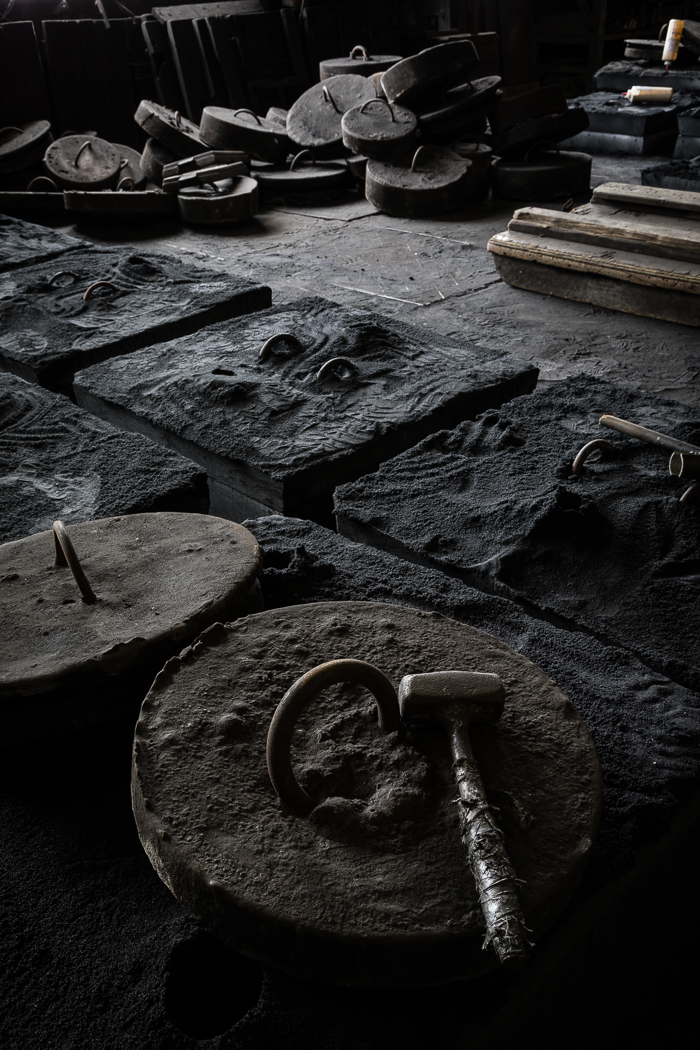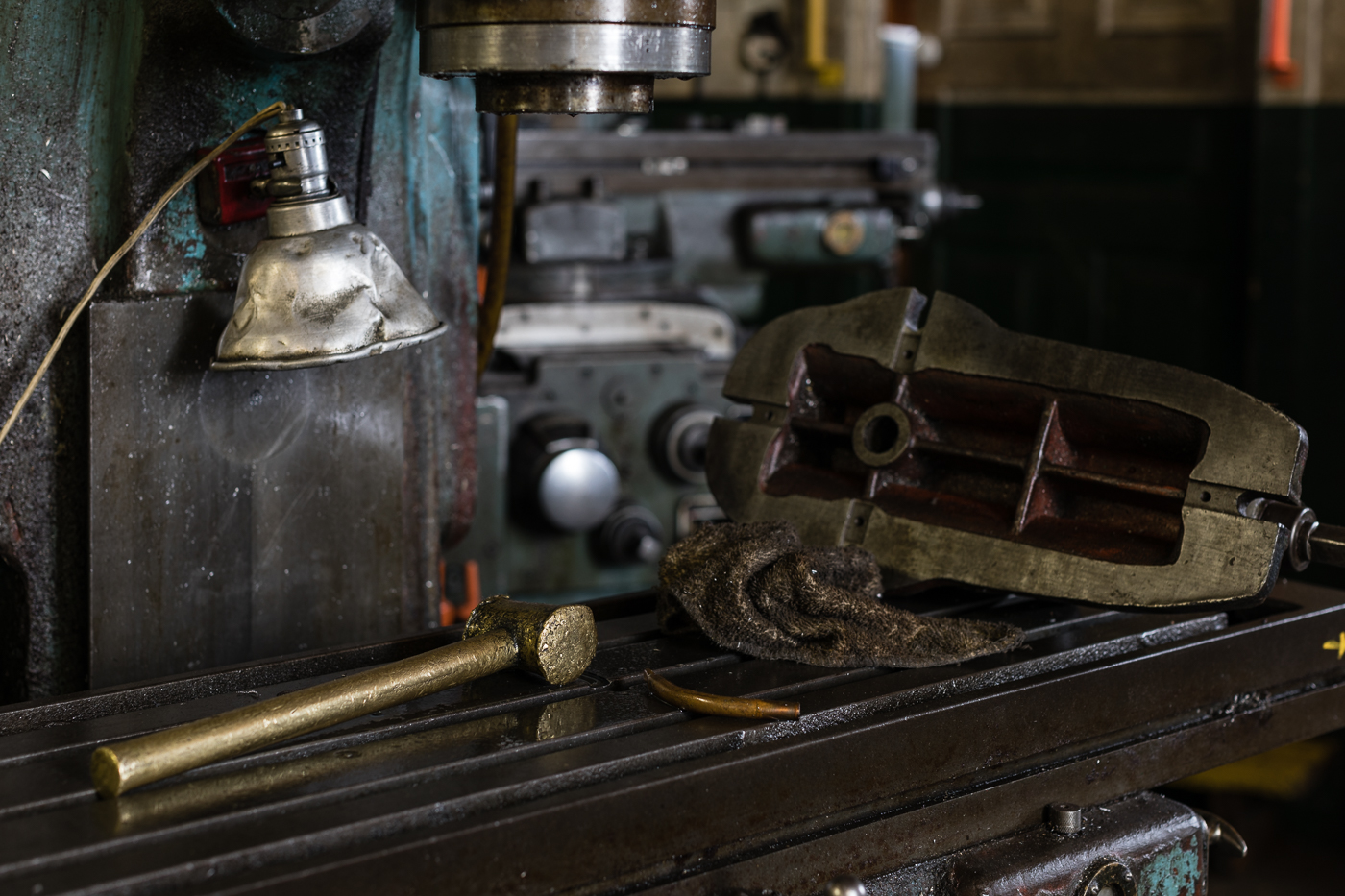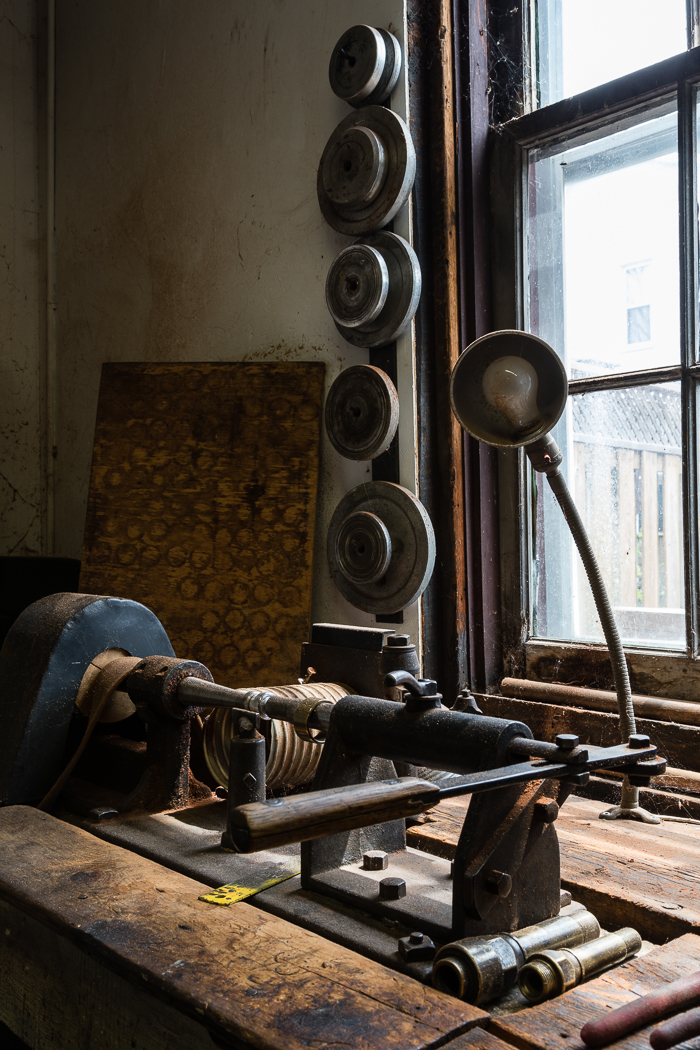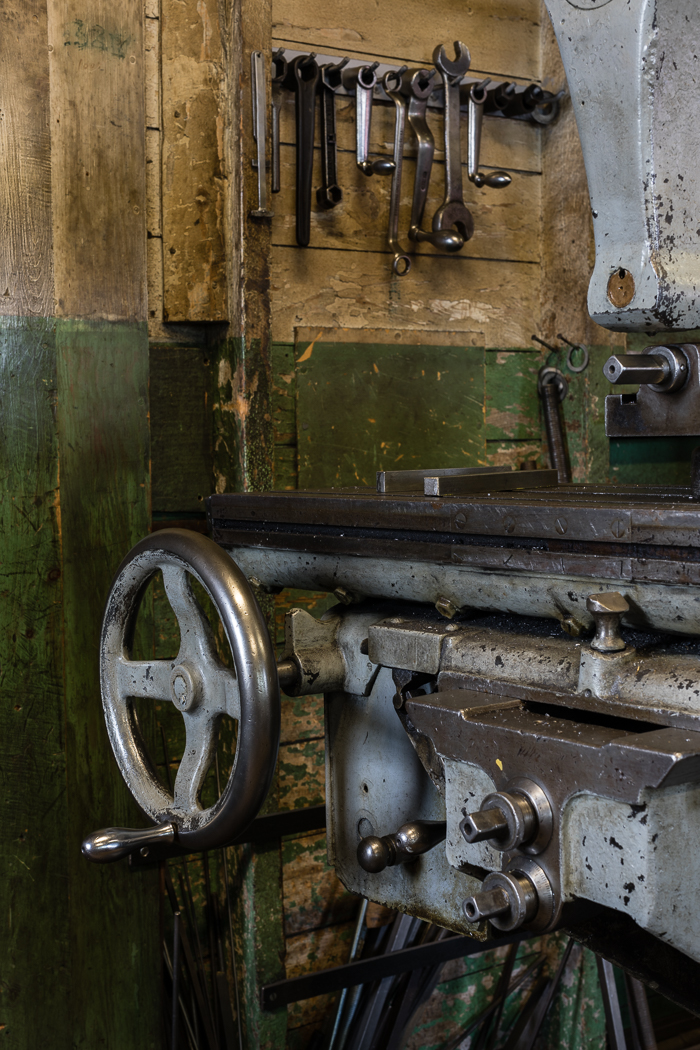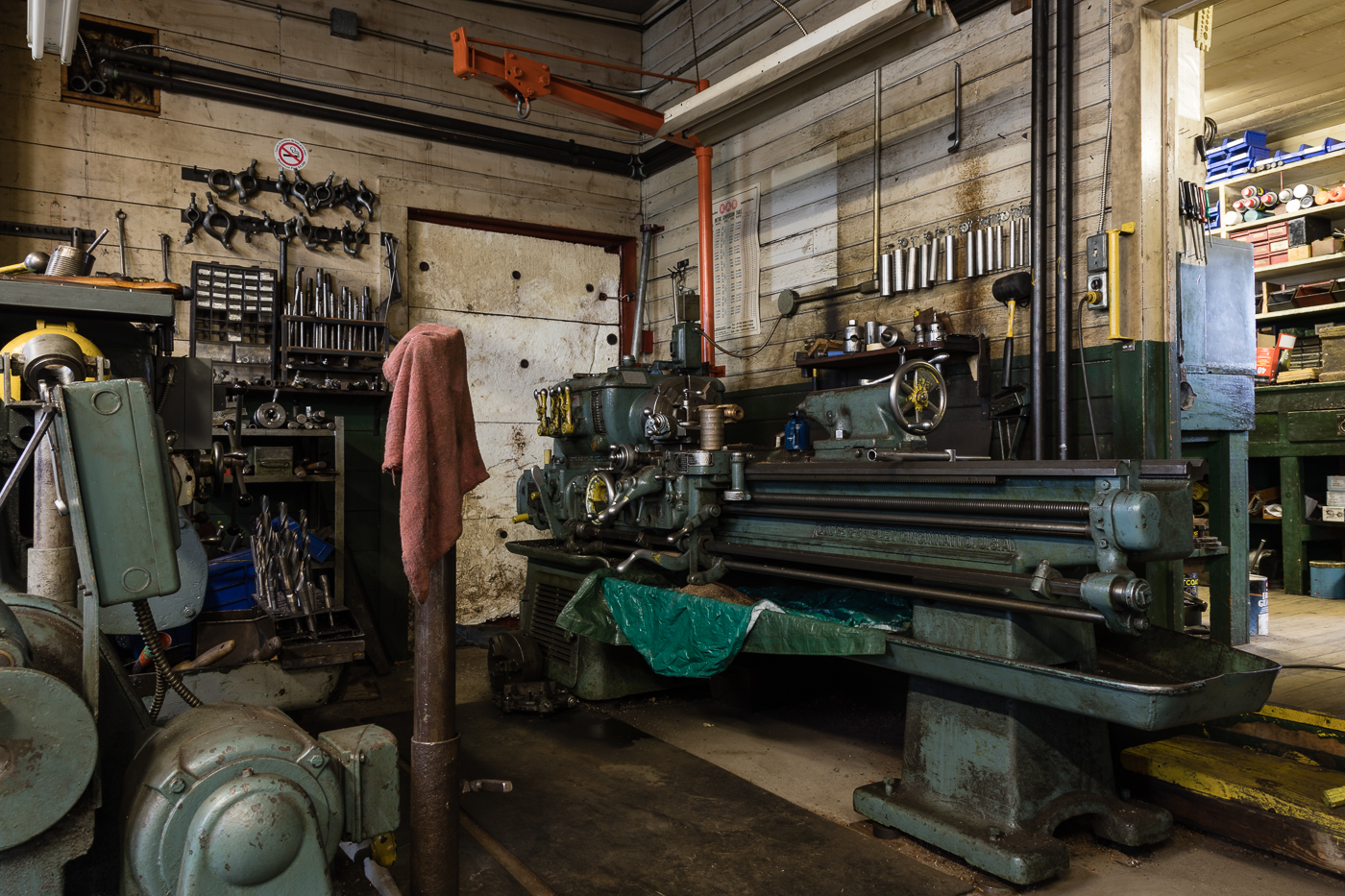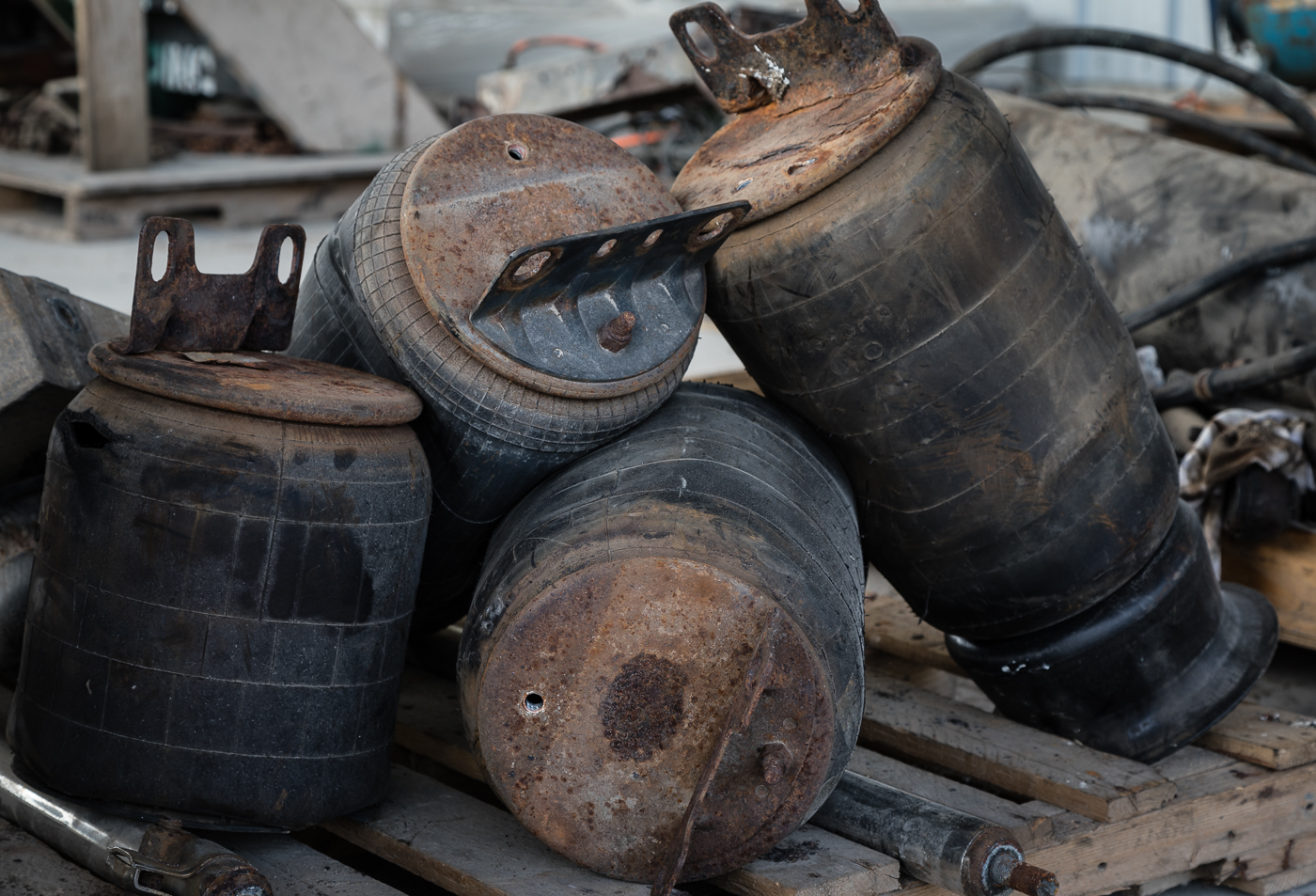I've always been fascinated with manufacturing, with the process of creating something, of assembling an object from component pieces using techniques and methods honed and refined over time. Big manufacturing plants intrigue me. But recently I've come across small operations, away from the big cities, situated in rural towns. They are remarkable, specialized businesses, utilizing rigorous and standardized - often proprietary - processes. And in them I've found the beginnings of a new photography project. I'm calling it Rural Industrial.
It's different from the landscapes, travel and urban scenes I've photographed to date. These are working facilities, full of equipment, often dark, where a shot is neither obvious nor easy to get. And before I can even take out a camera there's the challenge of talking to the owner, explaining what I want to do and why, and getting permission to enter their premises and take photographs. The explanation can take some time; they don't see what I see - that the shop floor, the machinery, the works in process, are beautiful. And sometimes that particular time isn't convenient for them to talk to me but if it's suggested I come back and try another day of course I do. Approaching busy owners is definitely not comfortable but it's the only way to get the images I want.
In the last few months I've photographed four rural industrial operations: a farm services facility, a foundry, a machine shop specializing in parts for local oil rigs, and a heavy machinery repair shop. Each is different. Each requires a dedicated owner or owners and skilled staff. Sometimes it's a single owner, sometimes a family group, and sometimes it's a second or third generation business.
Fertilizer storage and mixing silos, built in the mid-60's. The family-run farm services business has replaced the silos with modern versions and these are now scheduled to be taken down. With the late sun bathing them in colour and then a full moon rising in the background I find them a striking addition to the landscape and will miss them when they're gone.
A local foundry quickly became a favourite place. It's a thriving business where industrial products such as tree grates, manhole covers, and specialized parts are cast, and larger commissioned artworks created. The process is rigorous, time-consuming, and physical. Making the moulds, firing the furnace, preparing the molten metal, filling the moulds - all part of the process.
This shot was taken at the back of the foundry using only the natural light that came in through the frosted window. The boxes stacked in the corner, and the one on the floor are casings for moulds. The round object in the foreground is a furnace where metals are heated at intense temperatures and transformed into molten liquid.
Poured castings in the cooling process, weighted down to keep them stable.
Assorted weights, seen in the background of the previous images.
Scrap metal to be melted down, with pokers lined up against the wall in the foreground.
This part of western Ontario was where the oil industry began in Canada, and while it's no longer the "oil capital of Canada" oil is still in production here. It's done on a different scale, using different methods than the large scale operations, and it relies on the proprietor of a local machine shop to produce and repair the specialized parts needed to keep the wells running.
Belt-driven machinery, once powered by gas, is still operational after almost a century of use.
Brass tubing to be turned into parts for the oil wells.
There is equipment everywhere, and it's all in use. Not obsolete, not replaced with something new and modern.
There's more I want to photograph here. And I want to capture the history of this business that was started by a father and son in 1914. There's much to tell.
The last place is a heavy machinery repair shop. Trucks, large farm machinery, and lots of parts, both inside and outside the shop.
Two of the places I don't think I'll be returning to. The other two I definitely will as there's lots more to capture. I've found all these businesses exciting to visit and a privilege to photograph. I'm grateful I've had the chance to learn a bit about what goes on in our rural industrial world. And, as is often the case, one thing leads to another. I've now heard about a local blacksmith and a lumber mill that runs its equipment on steam. I'm thinking both would be worth a visit.


